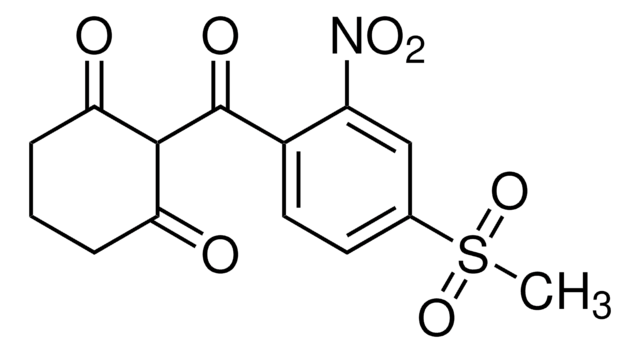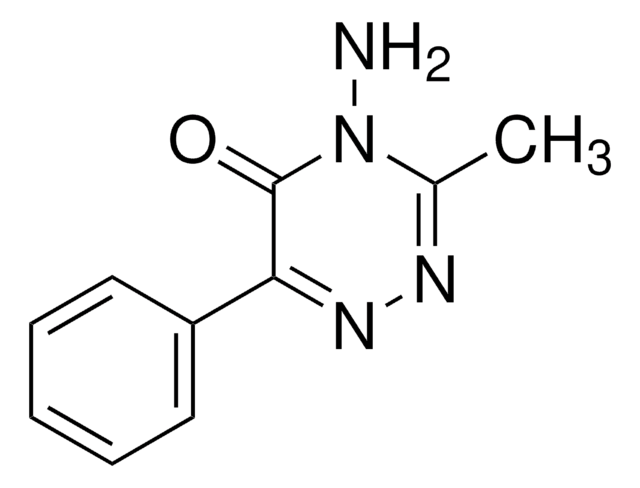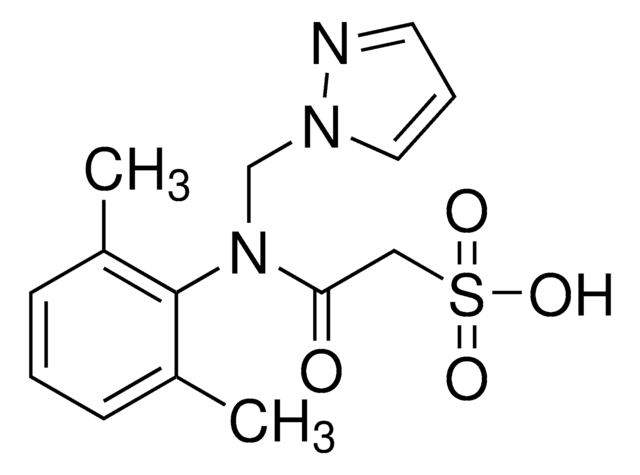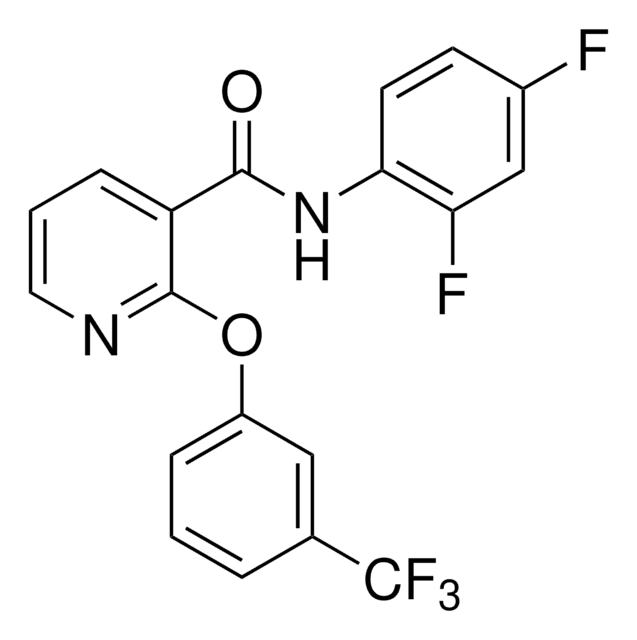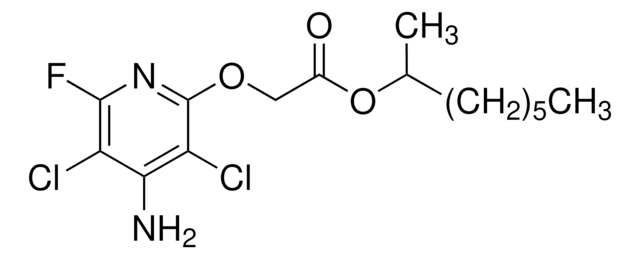36155
Metazachlor
PESTANAL®, analytical standard
About This Item
Produits recommandés
Qualité
analytical standard
Niveau de qualité
Gamme de produits
PESTANAL®
Durée de conservation
limited shelf life, expiry date on the label
Technique(s)
HPLC: suitable
NMR: suitable
gas chromatography (GC): suitable
Pf
74-78 °C
Adéquation
passes test for identity (NMR)
Application(s)
agriculture
environmental
Format
neat
Chaîne SMILES
Cc1cccc(C)c1N(Cn2cccn2)C(=O)CCl
InChI
1S/C14H16ClN3O/c1-11-5-3-6-12(2)14(11)18(13(19)9-15)10-17-8-4-7-16-17/h3-8H,9-10H2,1-2H3
Clé InChI
STEPQTYSZVCJPV-UHFFFAOYSA-N
Vous recherchez des produits similaires ? Visite Guide de comparaison des produits
Description générale
Application
- Natural water samples by high performance liquid chromatography-electrospray-tandem mass spectrometry (HPLC-ESI-MS/MS).
- Plant foodstuffs by capillary gas chromatography equipped with electron capture detector (ECD) as well as nitrogen phosphorus detector (NPD) followed by MS analysis in electron impact ionization (EI) mode.
- Drinking and related waters by solid phase extraction (SPE) followed by GC-EI-MS.
- Wastewater samples by SPE and subsequent analysis with ultra-performance liquid chromatography combined with time of flight mass spectrometry (UPLC-TOF-MS).
Produits recommandés
Informations légales
Mention d'avertissement
Warning
Mentions de danger
Conseils de prudence
Classification des risques
Acute Tox. 4 Oral - Aquatic Acute 1 - Aquatic Chronic 1 - Carc. 2 - Skin Sens. 1
Code de la classe de stockage
11 - Combustible Solids
Classe de danger pour l'eau (WGK)
WGK 3
Point d'éclair (°F)
Not applicable
Point d'éclair (°C)
Not applicable
Équipement de protection individuelle
dust mask type N95 (US), Eyeshields, Gloves
Faites votre choix parmi les versions les plus récentes :
Déjà en possession de ce produit ?
Retrouvez la documentation relative aux produits que vous avez récemment achetés dans la Bibliothèque de documents.
Les clients ont également consulté
Notre équipe de scientifiques dispose d'une expérience dans tous les secteurs de la recherche, notamment en sciences de la vie, science des matériaux, synthèse chimique, chromatographie, analyse et dans de nombreux autres domaines..
Contacter notre Service technique